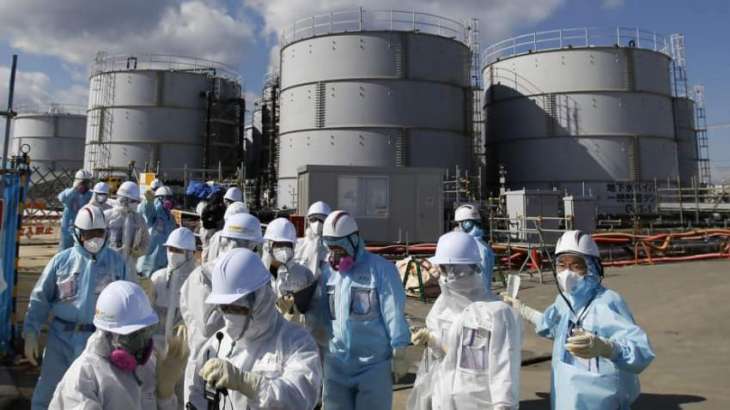Japan's Nuclear Regulation Authority has completed final inspections at the Fukushima Daiichi nuclear power plant (NPP) to check the plant's system for releasing treated and diluted water, and approved the precautionary measures taken before the act, Japanese media reported on Friday
MOSCOW (Pakistan Point News / Sputnik - 07th July, 2023) Japan's Nuclear Regulation Authority has completed final inspections at the Fukushima Daiichi nuclear power plant (NPP) to check the plant's system for releasing treated and diluted water, and approved the precautionary measures taken before the act, Japanese media reported on Friday.
The experts checked the water-release system for possible leaks and other abnormalities by passing fresh water instead of treated water through an underwater tunnel, as well as inspected the pumps and emergency shutoff valves, the NHK broadcaster reported. All the measures taken by the General Electric and Tokyo Electric Power Company (TEPCO), which operates the plant, were approved by the experts, NHK said. The regulator's approval was handed over to the company's management team.
The regulator's approval is the final step in the preparation of the procedure before the government sets a deadline.
International Atomic Energy Agency (IAEA) Director General Rafael Grossi said on Tuesday that Japan's plan to discharge treated water from the NPP, which was severely damaged by a magnitude 9 earthquake in 2011, was safe and in line with the agency's safety standards. However, local residents and farmers fear that the discharge of water from the NPP will have an adverse effect on the image of local food and products. On Wednesday, Grossi visited the plant and met with the local community.
On Friday, Grossi embarked on a tour of South Korea and several other Indo-Pacific countries to present the agency's position on Japan's plans.
In 2021, Japan announced its plan to dispose of Fukushima's treated water and invited the IAEA to verify its safety. Some countries, including New Zealand and South Korea, have opposed Japan's plans, with Tokyo hoping that Grossi's mission would change their minds, the Yomiuri Shimbun newspaper reported.
Japan had initially planned to begin discharging water purified of all radionuclides except tritium into the ocean 1 kilometer (0.6 miles) from the station this spring. However, the deadline was pushed back to the summer of 2023 due to adverse weather conditions and other factors.
The Fukushima nuclear disaster occurred on March 11, 2011. The plant was severely damaged by a magnitude 9 earthquake in the Pacific Ocean. This triggered a massive tsunami that hit the plant and caused three nuclear reactors to melt down. The accident is considered the worst nuclear disaster since the Chernobyl accident in 1986 and has resulted in widespread contamination of local soil and water. The disaster left 22,200 people dead or missing.




